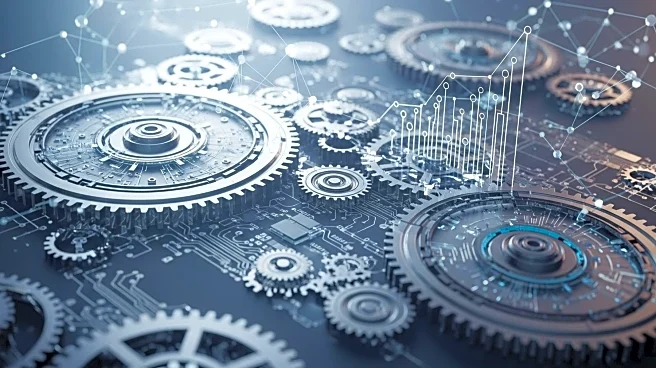What is the story about?
What's Happening?
Prashanth Prakash, a partner at the venture capital firm Accel, has expressed a positive outlook on the recent increase in H-1B visa fees. According to Prakash, this change could potentially reduce the talent drain from India, thereby strengthening the country's innovation ecosystem. He highlighted that the current challenges facing India in developing its own AI foundation model include a lack of academia, research capabilities, and capital. The increased visa fees might encourage more talent to remain in India, fostering local innovation and reducing dependency on foreign opportunities.
Why It's Important?
The increase in H-1B visa fees could have significant implications for both the U.S. and Indian tech industries. For the U.S., it may lead to a decrease in the influx of skilled workers from India, potentially impacting sectors that rely heavily on foreign talent. Conversely, for India, this could be an opportunity to retain skilled professionals, thereby enhancing its domestic tech industry and innovation capabilities. This shift could lead to a more balanced global tech landscape, with India potentially emerging as a stronger player in AI and other tech sectors.
What's Next?
As the effects of the H-1B visa fee increase unfold, stakeholders in both the U.S. and India will likely monitor the situation closely. U.S. companies may need to adjust their hiring strategies, possibly increasing investment in local talent development. Meanwhile, Indian startups and venture capitalists might capitalize on the opportunity to nurture homegrown talent, potentially leading to increased innovation and competitiveness in the global market.















